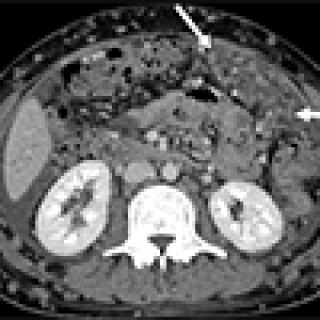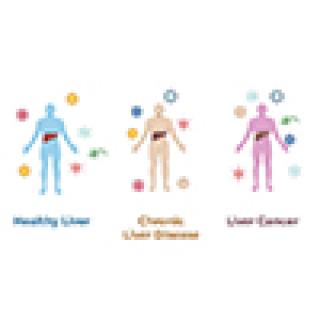News and Events
Celebrating CCR Careers: Steven Z. Pavletic, M.D., Ph.D.
Steven Z. Pavletic, M.D., Ph.D., is a renowned expert in chronic graft-versus-host disease, a serious late complication that can happen after allogeneic bone marrow transplants. After serving at the NCI for over 20 years, he is now announcing his retirement.
Read MoreStudy finds drug beneficial for shrinking mesothelioma tumors
A drug that is designed to boost the immune system against mesothelioma, when combined with immunotherapy, was found to be beneficial in a small study involving ten patients. The results suggest that the drug LMB-100 could prolong the life of some patients with advanced disease.
Read MoreClinical trial studies combination therapy for certain mature T-cell cancers that have not responded to treatment
Adult T-cell leukemia/lymphoma (ATLL) and mycosis fungoides/Sézary syndrome (MF/SS) are fast-growing cancers that form in T cells, a type of white blood cell that is key to the body’s immune response. A clinical trial is being conducted at the NIH Clinical Center to test a combination therapy for these rare cancers.
Read MoreClinical trial tests targeted radioactive agent as therapy for metastatic prostate cancer
Prostate-specific membrane antigen (PSMA) is present on the surface of all prostate cancer cells but is highly expressed on cells of castration-resistant prostate cancer (mCRPC). Frank Lin, M.D., Investigator in the the Molecular Imaging Program, is leading NCI’s effort to study the effect of targeted treatment with a radioactive agent to test dosing and overall effect for these patients.
Read MoreA Conversation with Christina Annunziata, M.D., Ph.D.
Christina Annunziata, M.D., Ph.D., is an Investigator in the Women’s Malignancies Branch at the Center for Cancer Research. She has spent most of her career studying the molecular underpinnings of ovarian cancer with the goal of discovering novel treatments. In our Q&A, Dr. Annunziata discusses her personal and professional milestones as well as new directions for her research.
Read MoreNew chemical sequencing reaction helps unravel the role of an ancient RNA modification
CCR researchers and collaborators have developed a novel chemical reaction that enables the quantitative mapping of an ancient and enigmatic RNA modification that is found in nearly all organisms on earth, providing fundamental insights that are potentially important for tumor biology and cancer treatment.
Read MoreClinical trial studies CAR T-cell therapy for relapsed/refractory acute myeloid leukemia
Acute myeloid leukemia (AML) is a cancer of the blood and bone marrow, the soft inner part of long bones where new blood cells are made. With AML, bone marrow cells don't grow the way they're supposed to. Instead, immature bone marrow cells grow uncontrollably and build up in the body. This study is testing the effect of chimeric antigen receptor T cells (CAR T cells) for children and young adults.
Read MoreNew clinical trial evaluates chemotherapy delivery for stomach cancer
A clinical trial testing chemotherapy delivery for stomach cancer that has spread to the lining of abdominal cavity is underway at the NIH Clinical Center. Investigators are evaluating how this delivery may improve outcomes for patients with this rare condition.
Read MoreCCR presentations at AACR 2020 - Session II
The American Association for Cancer Research (AACR) Annual Meeting covers the latest discoveries across the spectrum of cancer research—from population science and prevention; to cancer biology, translational, and clinical studies; to survivorship and advocacy—and highlights the work of the best minds in research and medicine from institutions all over the world. The 2020 AACR Virtual Annual Meetings I and II will take place April 27-28 and June 22-24, respectively. View the list of CCR presenters for the June meeting.
Read MoreCCR scientists develop new blood test that may improve liver cancer screening
Scientists led by Xin Wei Wang, Ph.D., Deputy Chief of the Laboratory of Human Carcinogenesis, have developed a new test that can identify people who are likely to develop hepatocellular carcinoma (HCC), the most common form of liver cancer. The approach uses a simple blood test to check for the patient’s previous exposure to certain viruses. “Together with existing screening tests, the new test could play an important role in screening people who are at risk for developing HCC. It could help doctors find and treat HCC early. The method is relatively simple and inexpensive, and it only requires a small amount of blood,” he says.
Read MoreIn Memoriam: Isaiah Fidler, D.V.M, Ph.D.
The Center for Cancer Research mourns the recent death of past colleague and friend Isaiah Fidler, D.V.M., Ph.D. He joined the National Cancer Institute in 1975 and led the metastasis program at the Frederick Cancer Research Facility. His eight years at NCI produced some of his early innovative work in unraveling the riddles of how cancer spreads.
Read More









